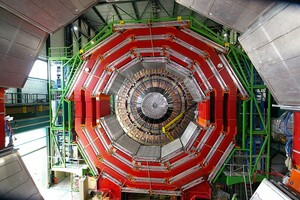The organization is considering suspending some accelerators during peak demand.

The European Organization for Nuclear Research (CERN) is considering the possibility shutting down some of its particle accelerators during periods of peak electricity demand due to the EU energy crisis. Among these accelerators is the Large Hadron Collider (LHC), said Serge Claude, head of the Energy Management Commission, The Wall Street Journal reports.
“We are concerned about energy stability because we all want to avoid blackouts in our region,” Claude said.
Also read: Large Hadron Collider: Only Higgs boson discovered in 10 years – not much for such expensive toys
As the publication notes, such preparation shows the far-reaching consequences of Moscow's efforts to turn Europe's energy dependence into a weapon of economic warfare. The emergency measures are being discussed after Russia's Gazprom said it would suspend Nord Stream gas supplies indefinitely.
CERN is located on the border of France and Switzerland and is one of France's biggest consumers of electricity. During peak hours, it consumes about 200 megawatts of electricity, which is about a third of the consumption of neighboring Geneva.
The most famous result of the work of the HAC was the confirmation in 2012 of the existence of the Higgs boson. Now scientists at VAK are studying the boson and looking for other particles that might be part of the dark matter that is thought to make up most of the universe.
The collider pushes protons and other particles in opposite directions in a 27-kilometer-long ring, slamming them into each other at speeds close to the speed of light to study the short-lived particles that emerge from the collisions.
Claude notes that CERN's goal is to keep the HAC running and avoid shutting it down, as it could damage a car valued at $4.4 million. He also added that the organization is in talks with leading electricity suppliers to give them a day's notice if CERN needs to consume less energy. In this case, the priority will be to turn off other accelerators, not VAK, which will reduce the amount of required electricity by 25%. Shutting down the collider will save another 25%.
Related video
Earlier scientists working at the Large Hadron Collider discovered three new types of exotic particles. They discovered an unusual pentaquark, a charged tetraquark and its neutral partner.




